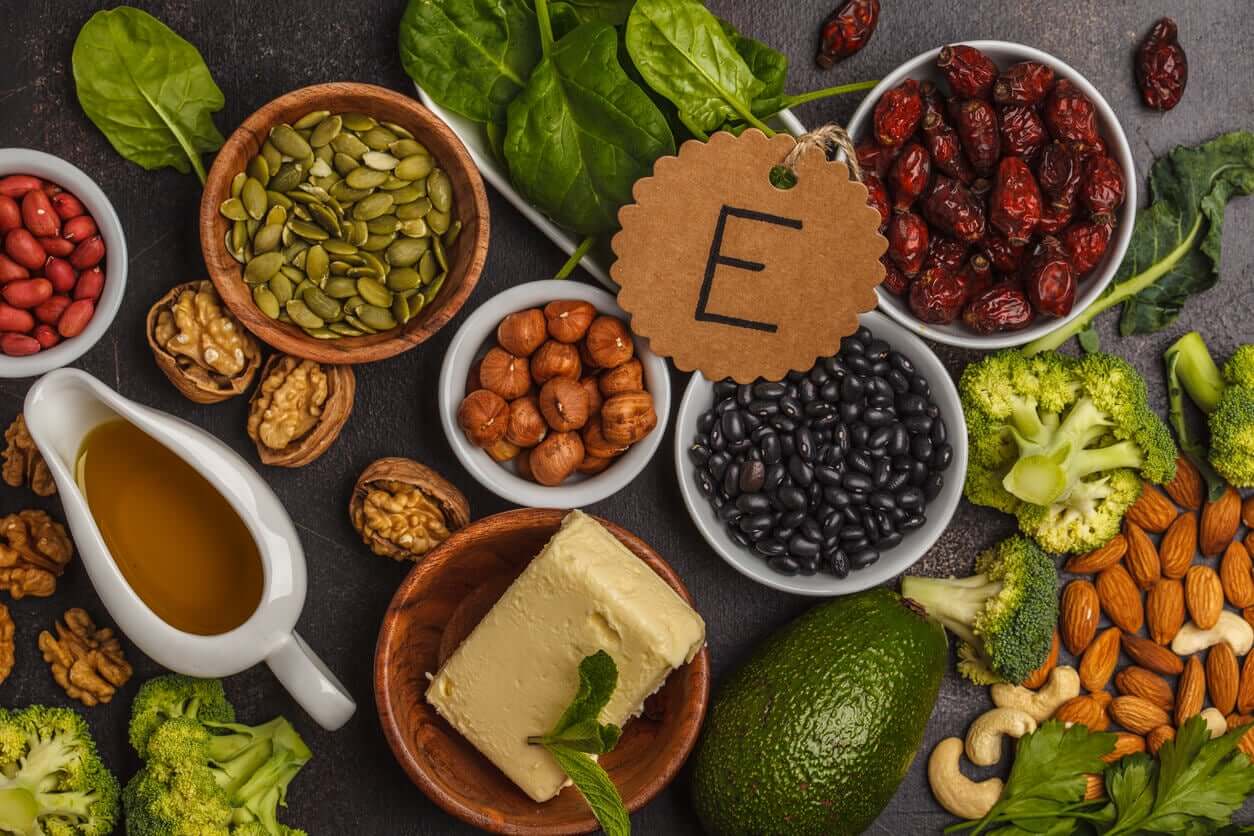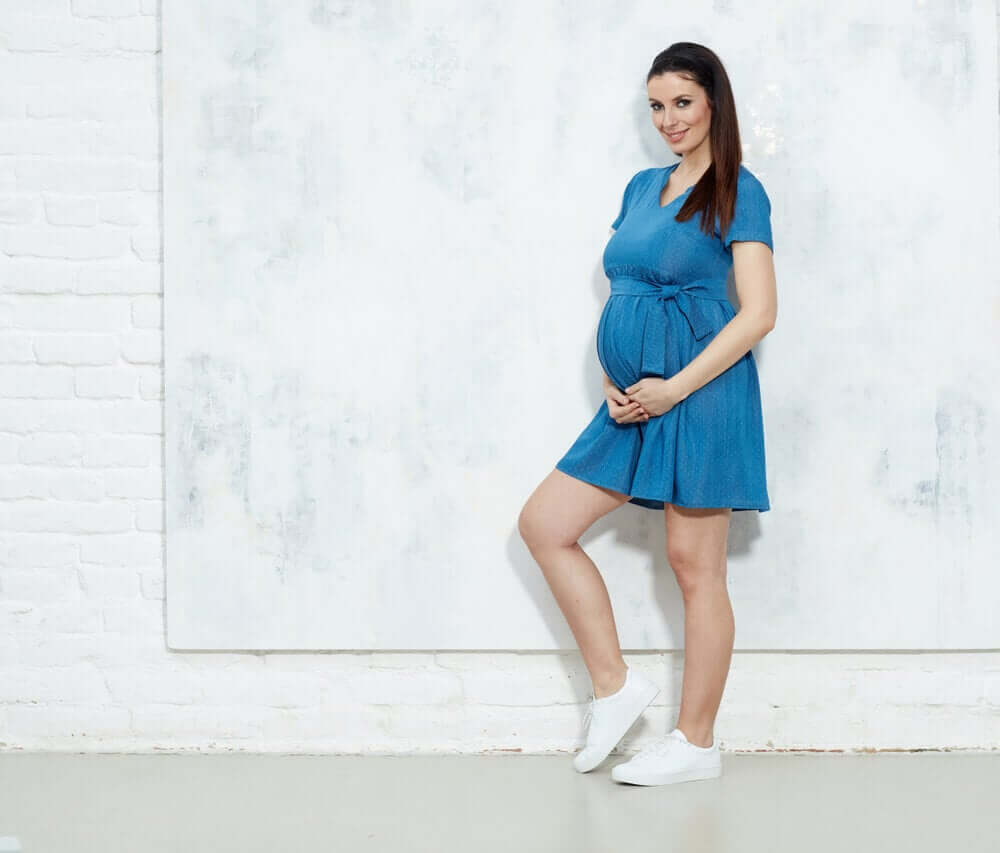9 Home Remedies for Yeast Infections During Pregnancy


Written and verified by the dermatologist Maria del Carmen Hernandez
Vaginal yeast infections are caused by the overgrowth of a fungus that inhabits that cavity, called Candida albicans. The development of this condition is variable and can cause inflammation, itching, irritation, and even the elimination of painful secretions. Below, we’ll tell you how to improve the discomfort of yeast infections during pregnancy.
Natural recipes to fight yeast infections during pregnancy
Always in combination with the appropriate pharmacological treatment, complementary therapies can provide some relief and help balance the vaginal pH. This creates a healthy environment in the area, which is extremely important in preserving the health of the baby.
Take note of the following home remedies!
1. Vitamin E
According to a study published in 2020 in the journal Microorganisms, vitamin E contributes to reducing the inflammation produced by Candida albicans.
In addition, it’s a nutrient that functions as an antioxidant in the body and that exists naturally in various foods: Spinach, nuts, fish, avocado, among others.

2. Tea tree oil
Tea tree oil is one of the most prominent essential oils, as it has antimicrobial properties that are effective against different types of germs. In addition, it favors healing processes.
According to a scientific trial, the use of tea tree oil on fungal nails achieves a total or partial resolution of the clinical manifestations.
Also read: How Do Hormonal Changes Affect the Skin After Childbirth?
3. Probiotics
Probiotics can be effective against the Candida albicans fungus. For this reason, yogurt can be considered one of the probiotics par excellence because it contains bacteria such as Lactobacillus acidophilus.
These bacteria are essential to creating a healthy environment in the vagina. According to recent research, the intake of this food increases the microbiome of the intestine and decreases the amount of the fungus in the body.
4. Changes in your diet
Not only are home remedies important to treating yeast infection during pregnancy, but also to implement certain dietary changes. These help improve health and limit the development of infections.
Therefore, it’s important to reduce the consumption of the following products:
- Simple sugars and sugary foods
- Milk
- Yeast foods (rice, pasta, dough, and flour)
On the contrary, the consumption of legumes, fish, meat, and eggs is very beneficial in this sense, so they’re worth reinforcing.
5. Cotton clothes
The choice of underwear is important when it comes to maintaining proper skin hygiene. In fact, garments made from natural fabrics, such as cotton, linen, or silk tend to irritate the intimate area less.
On the contrary, synthetic tissues make the region more vulnerable to certain local infections.
We also recommend changing your underwear on a daily basis, so as not to promote an unfavorable environment. Increased heat and perspiration in the genital area can alter the pH of the vaginal mucosa and thus deregulate the usual flora.
6. Rinses with lukewarm water
Douching along with vaginal perfumes can alter the healthy and physiological balance of the local microbiota. That’s why it’s important to avoid them, as well as vaginal deodorants, powders, and hygienic sprays. All of these products often contain harsh chemicals and fragrances.
Genital rinses with only warm water and no soap are the best option. It’s important to remember that washing the intimate area should always be from front to back in order to avoid contamination.
After performing this hygiene, it’s important to dry the area well without friction and with a clean cotton towel. Finally, try to clean your hands well to prevent infections in other areas.
You may be interested in: Vaginal Infections During Pregnancy
7. Vitamin C
The regular intake of vitamin C is a great stimulant of the immune system and this also contributes to maintaining the health of the skin. In addition, it has antimicrobial components that limit the growth of Candida Albicans.
However, acidic vitamin C shouldn’t be applied directly to sensitive vaginal tissue.
8. The use of specific products
The use of intimate care soaps that have a pH within physiological ranges is recommended. That is, with a level of acidity similar to that of the mucosa of the vagina (between 3.5 and 5.5). These hygienic measures help not to disturb the balance of the bacterial flora.
9. Choose loose-fitting clothes

Clothing that’s too tight tends to retain moisture and heat in the area, which favors the development of infections.
The use of tight-fitting clothing isn’t recommended, and nor are pantyhose because they decrease airflow and ventilation in the genital area. It’s even advisable not to wear underwear during the night.
Yeast infections during pregnancy and medical consultation
In conclusion, the use of home remedies for yeast infections during pregnancy should be practiced with care. Although it’s considered a mild illness, you need to complement it with the correct pharmacological treatment indicated by your doctor.
Vaginal yeast infections are caused by the overgrowth of a fungus that inhabits that cavity, called Candida albicans. The development of this condition is variable and can cause inflammation, itching, irritation, and even the elimination of painful secretions. Below, we’ll tell you how to improve the discomfort of yeast infections during pregnancy.
Natural recipes to fight yeast infections during pregnancy
Always in combination with the appropriate pharmacological treatment, complementary therapies can provide some relief and help balance the vaginal pH. This creates a healthy environment in the area, which is extremely important in preserving the health of the baby.
Take note of the following home remedies!
1. Vitamin E
According to a study published in 2020 in the journal Microorganisms, vitamin E contributes to reducing the inflammation produced by Candida albicans.
In addition, it’s a nutrient that functions as an antioxidant in the body and that exists naturally in various foods: Spinach, nuts, fish, avocado, among others.

2. Tea tree oil
Tea tree oil is one of the most prominent essential oils, as it has antimicrobial properties that are effective against different types of germs. In addition, it favors healing processes.
According to a scientific trial, the use of tea tree oil on fungal nails achieves a total or partial resolution of the clinical manifestations.
Also read: How Do Hormonal Changes Affect the Skin After Childbirth?
3. Probiotics
Probiotics can be effective against the Candida albicans fungus. For this reason, yogurt can be considered one of the probiotics par excellence because it contains bacteria such as Lactobacillus acidophilus.
These bacteria are essential to creating a healthy environment in the vagina. According to recent research, the intake of this food increases the microbiome of the intestine and decreases the amount of the fungus in the body.
4. Changes in your diet
Not only are home remedies important to treating yeast infection during pregnancy, but also to implement certain dietary changes. These help improve health and limit the development of infections.
Therefore, it’s important to reduce the consumption of the following products:
- Simple sugars and sugary foods
- Milk
- Yeast foods (rice, pasta, dough, and flour)
On the contrary, the consumption of legumes, fish, meat, and eggs is very beneficial in this sense, so they’re worth reinforcing.
5. Cotton clothes
The choice of underwear is important when it comes to maintaining proper skin hygiene. In fact, garments made from natural fabrics, such as cotton, linen, or silk tend to irritate the intimate area less.
On the contrary, synthetic tissues make the region more vulnerable to certain local infections.
We also recommend changing your underwear on a daily basis, so as not to promote an unfavorable environment. Increased heat and perspiration in the genital area can alter the pH of the vaginal mucosa and thus deregulate the usual flora.
6. Rinses with lukewarm water
Douching along with vaginal perfumes can alter the healthy and physiological balance of the local microbiota. That’s why it’s important to avoid them, as well as vaginal deodorants, powders, and hygienic sprays. All of these products often contain harsh chemicals and fragrances.
Genital rinses with only warm water and no soap are the best option. It’s important to remember that washing the intimate area should always be from front to back in order to avoid contamination.
After performing this hygiene, it’s important to dry the area well without friction and with a clean cotton towel. Finally, try to clean your hands well to prevent infections in other areas.
You may be interested in: Vaginal Infections During Pregnancy
7. Vitamin C
The regular intake of vitamin C is a great stimulant of the immune system and this also contributes to maintaining the health of the skin. In addition, it has antimicrobial components that limit the growth of Candida Albicans.
However, acidic vitamin C shouldn’t be applied directly to sensitive vaginal tissue.
8. The use of specific products
The use of intimate care soaps that have a pH within physiological ranges is recommended. That is, with a level of acidity similar to that of the mucosa of the vagina (between 3.5 and 5.5). These hygienic measures help not to disturb the balance of the bacterial flora.
9. Choose loose-fitting clothes

Clothing that’s too tight tends to retain moisture and heat in the area, which favors the development of infections.
The use of tight-fitting clothing isn’t recommended, and nor are pantyhose because they decrease airflow and ventilation in the genital area. It’s even advisable not to wear underwear during the night.
Yeast infections during pregnancy and medical consultation
In conclusion, the use of home remedies for yeast infections during pregnancy should be practiced with care. Although it’s considered a mild illness, you need to complement it with the correct pharmacological treatment indicated by your doctor.
All cited sources were thoroughly reviewed by our team to ensure their quality, reliability, currency, and validity. The bibliography of this article was considered reliable and of academic or scientific accuracy.
- Barros S, Ribeiro APD, Offenbacher S, Loewy ZG. Anti-Inflammatory Effects of Vitamin E in Response to Candida albicans. Microorganisms. 2020;8(6):804. Published 2020 May 26. doi:10.3390/microorganisms8060804
- Buck DS, Nidorf DM, Addino JG. Comparison of two topical preparations for the treatment of onychomycosis: Melaleuca alternifolia (tea tree) oil and clotrimazole. J Fam Pract. 1994 Jun;38(6):601-5. PMID: 8195735.
- Aguin TJ, Sobel JD. Vulvovaginal candidiasis in pregnancy. Curr Infect Dis Rep. 2015 Jun;17(6):462. doi: 10.1007/s11908-015-0462-0. PMID: 25916994.
- Godha K, Tucker KM, Biehl C, Archer DF, Mirkin S. Human vaginal pH and microbiota: an update. Gynecol Endocrinol. 2018 Jun;34(6):451-455. doi: 10.1080/09513590.2017.1407753. Epub 2017 Dec 22. PMID: 29271266.
This text is provided for informational purposes only and does not replace consultation with a professional. If in doubt, consult your specialist.








